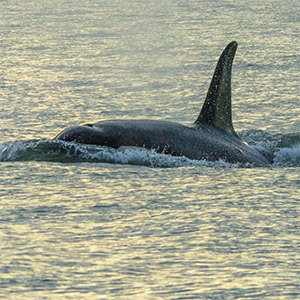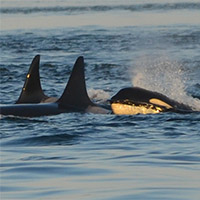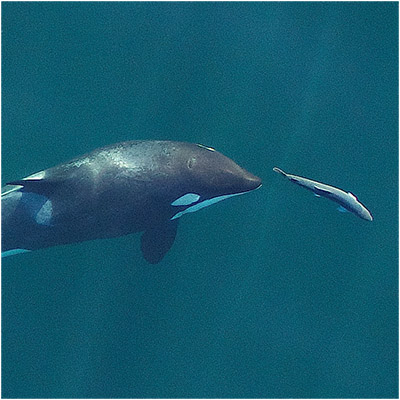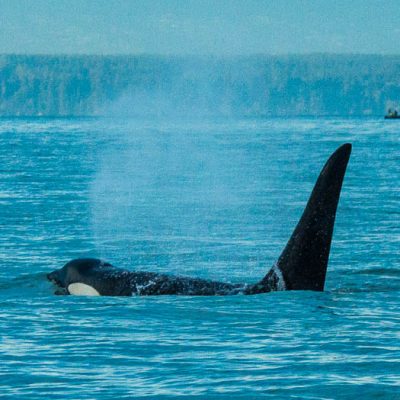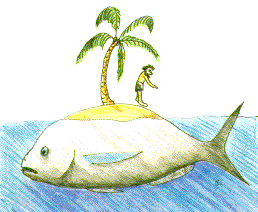Teenage orcas could be roughhousing with boats off the coast of Spain
Killer whales are in the news for sinking boats off the coast of Spain.
Food quality matters for southern resident killer whales, UBC study states
If southern resident killer whales ate just low-lipid salmon, they would have to eat around 80,000 more Chinook salmon every year than if they just ate high-lipid salmon.
Toxic toilet paper and long-lasting chemicals found in endangered killer whales
A chemical used in the production of toilet paper and ‘forever chemicals’ have been found in the bodies of orcas in B.C. , including the endangered southern resident killer whales.
Southern resident killer whales not getting enough to eat since 2018
The animals have been in an energy deficit, averaged across spring, summer and fall, for six of the last 40 years.
Enhanced statistical models will aid conservation of killer whales and other species
The whale used to develop the model preferred to save energy by gliding through the water when making deep dives, and when it was closer to the surface, it moved more actively, accelerating faster and ‘fluking’ its tail more often.
No apparent shortage of prey for southern resident killer whales in Canadian waters during summer
Researchers reported that Chinook salmon in the Salish Sea in summertime are four to six times more abundant for southern resident killer whales than northern resident killer whales.
PROFILE: Finding novel ways to use modelling to solve oceans, fisheries and social problems
GOM took advantage of the COVID-19 pandemic, moving online, and connecting with researchers from 29 countries.
What’s Killing Killer Whales?
Despite there being no singular common cause of death, the study found a common theme: Human-caused deaths occurred in every age class — from juveniles to subadults and adults.
New footage gives whale’s-eye view of northern and southern resident orcas
UBC and Hakai Institute researchers have just returned from a 30-day research trip in the northern and southern waters of Vancouver Island, where they gathered stunning new aerial and underwater footage of northern and southern resident killer whales that offers an unparalleled glimpse into the underwater lives of these whales. The research is part of […]
Aerial drones offer new perspective on resident killer whale behaviour
Scientists got a rare glimpse into the underwater behaviour of killer whales off the B.C. coast, with the help of aerial drones.
